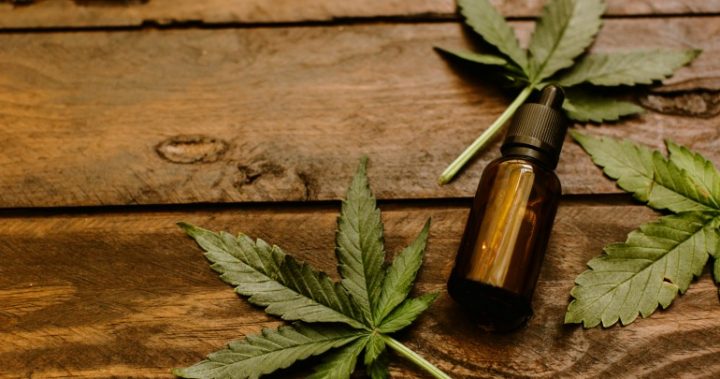
Now more than ever, Australians are considering medical marijuana as a form of treatment for an array of different health problems.
With stars including Olivia Newton-John using cannabis to treat pain and inflammation, use of the drug is something that’s constantly in the media.
Newton-John describes marijuana as a “healing plant” and she says using it isn’t exactly what people typically envision. For her, it’s not about getting stoned. Instead, it helped her manage symptoms that came with a cancer diagnosis. She’s not alone, with more Australians using marijuana in various forms to treat everything from multiple sclerosis to epilepsy and cancer.
There’s even a team of over-60s known as the Canna Nannas, who travel Australia on a quest to educate other Baby Boomers about the positive power of the drug. For these ladies, cooking with the drug is the key to better health and they host events in community halls across the country to teach others how to blend the drug into everyday foods and drinks.
There is somewhat of a legal grey area surrounding the use of cannabis, however. The general consensus from health professionals is that people shouldn’t be taking the drug recreationally and shouldn’t self-medicate. Having said that, recent changes to the federal Narcotic Drugs Act 1967 decriminalised the use and supply of medicinal cannabis.
According to the Therapeutic Goods Administration, a range of products are currently available to Australians, but are imported through Canada and Europe. Raw or botanical cannabis is not to be smoked, it says. Instead, patients are encouraged to vaporise to get the medical benefits.
There are also cannabis extracts used for oils (which are particularly popular), as well as solvent extracts and sprays. A range of gels and creams are also in development, while products sourced from locally grown medical cannabis will be available from later this year.
At present, one of the only legal ways to obtain any of these products is to be prescribed by a registered medical practitioner.
It’s not always as easy as showing up to any GP with a problem either, as doctors will assess each patient to determine whether cannabis is appropriate. Nabiximols – a mouth spray – is the only registered pharmaceutical product in Australia that contains cannabis and can be prescribed by a doctor but only for specific ailments (usually related to multiple sclerosis), meaning all other products need to be obtained through doctors via special pathways. They can only be accessed by Australian-registered medical practitioners and even then, doctors must abide by laws specific to each state and territory.
Given the tricky nature of accessing medicinal marijuana through the medical system, many people consider the logistics of growing their own plants.
In 2016, the Office of Drug Control (ODC) began accepting cannabis cultivation applications from private individuals or groups, although these people needed to prove they were an existing licensed medicinal cannabis manufacturer or researcher and pass a specific test to ensure they were “fit and proper” to grow the drug securely. So legally growing your own medicinal cannabis is far from a straightforward process.
You can find more information from the ODC here. But in short, as Cannabis Support and Information advises, “before you grab the shovel and watering can, let’s get this straight: no, you can’t start growing and consuming your own marijuana in Australia – it’s still illegal”.
That said, plenty of older Aussies flock to Nimbin in New South Wales, long known as a drug-supply haven, to stock up on cannabis products, particularly cannabis oil. And although it is reportedly easily accessed in Nimbin where law enforcement appears to turn somewhat of a blind eye to the sales, there are some legal dangers to keep in mind, as the case of a 67-year-old woman, who was arrested while selling ‘cannabis cake’ in the street of the town, demonstrates.
There are plenty of online sites based in Australia and overseas that offer cannabis oil for sale, the sites are very hazy on whether supplying their products to Australians is legal, and the Hemp Embassy based on Nimbin noted only last month in a blog post that “cannabis use and possession, even for medical purposes, is still illegal and a difficult to obtain product for the majority of people all over Australia”.
The Hemp Embassy does helpfully point to a piece of research by the University of Sydney that explains how to try to find a doctor who is willing to legally prescribe cannabis products for patients who meet the guidelines, as well as links to the individual states’ and territories’ guidelines on which patients are eligible for the products.
As for health benefits of medicinal marijuana, there is evidence to support claims that there are many.
When it comes to multiple sclerosis, it is thought using cannabis can help manage pain, progression of disability, bladder function, sleep patterns and quality of life. For epilepsy sufferers, the drug is thought to reduce seizures, while it’s thought to prevent nausea and vomiting in patients receiving treatment for cancer.
Many people use it for less serious but life-altering chronic conditions such as back or joint pain, while others say that it can help relieve anxiety and depression.
While there is evidence to suggest many benefits associated with the use of cannabis, it’s important to realise there are also side-effects. Like any drug or medication, symptoms can vary from person to person.
Known impacts of medical marijuana treatment feelings of tiredness, vertigo, nausea and vomiting, fever, decreased or increased appetite, dry mouth, and diarrhoea. Others experience convulsions, depression, confusion, hallucinations, paranoia, psychosis and even cognitive issues.
It’s always important to talk to a health professional about your health and not to purchase drugs off the street that may have unknown additives.